Online trading platforms in Japan offer Japanese traders access to global financial assets to buy and sell, with the aim of making a profit. Some online trading platforms offer access to specific asset types to Japanese traders including stocks and shares, cryptocurrencies, Forex currencies, commodities, ETFs and CFD trades.
In any case, it is vital to make sure the trading platform in Japan you choose is well regulated and reliable and has competitive trading fees in Japan, along with advanced technical analysis tools and educational resources. Japanese traders should always look for a stable online platform to trade financial markets in Japan. Modern online trading platforms in Japan are available on both desktop and mobile devices. Its never been easier for Japanese traders to find a reliable and easy-to-use platform in Japan that offers them the best trading experience.
Trading platforms in Japan vary widely in terms of features and fees. The most basic Platforms in Japan are free, and allow you to Japan trade in a variety of assets. A trading platform in Japan with a limited number of side features is not ideal if you want to learn more about the stock market. A trading platform in Japan that allows you to Japan trade without additional tools will likely be cheaper. You can also select a platform in Japan that allows you to Japan trade in several different markets.
When choosing a trading platform in Japan, be sure to consider your style and rate of investment. Proper trading platforms in Japan will offer advanced trading tools, and commercial Platforms in Japan will provide a basic platform in Japan for retail investors and day Japan traders. Proper trading platforms in Japan will offer premium research, investor education and tools. These Platforms in Japan may be more customized to the specific market in which you want to invest. However, many Platforms in Japan are free. So, when you are looking for a trading platform in Japan, make sure to keep these considerations in mind.

🤴 AvaTrade is Used By: 200,000
⚡ AvaTrade is Regulated by: Central Bank of Ireland, Australian Securities and Investments Commission (ASIC), Financial Services Authority (FSA), South African Financial Sector Conduct Authority (FSCA), Financial Stability Board (FSB), Abu Dhabi Global Markets (ADGM), Financial Regulatory Services Authority (FRSA), British Virgin Islands Financial Services Commission (BVI)
💵 What You Can Trade with AvaTrade: Forex, Minors, Cryptocurrencies, Majors, Exotics, Indices, UK Stocks, US Stocks, Energies, Metals, Agriculturals, ETFs, IPO, Bonds,
💵 Instruments Available with AvaTrade: 1000
📈 AvaTrade Inactivity Fees: No
💰 AvaTrade Withdrawal Fees: No
💰 AvaTrade Payment Methods: Credit cards, VISA, MasterCard, Bank Transfer, Electronic wallets (eWallets), PayPal, Neteller, WebMoney, Payoneer,
AvaTrade Risk warning : 71% of retail CFD accounts lose money
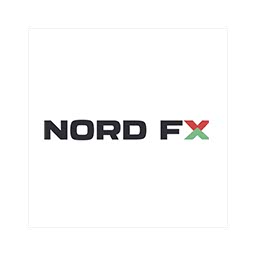
🤴 NordFX is Used By: 10,000
⚡ NordFX is Regulated by: Cyprus Securities and Exchange Commission (CySEC), License No: 209/13
💵 What You Can Trade with NordFX: Forex, Majors, Metals,
💵 Instruments Available with NordFX: 50
📈 NordFX Inactivity Fees: No
💰 NordFX Withdrawal Fees: No
💰 NordFX Payment Methods: Bank Transfer, Neteller, PerfectMoney, WebMoney, FasaPay, CashU, Payza, QIWI,
NordFX Risk warning : Losses can exceed deposits

🤴 XTB is Used By: 250,000
⚡ XTB is Regulated by: Financial Conduct Authority (FCA), FCA number FRN 522157, Cyprus Securities and Exchange Commission (CySEC), CySEC Licence Number: 169/12, Comision Nacional del Mercado de Valores, Komisja Nadzoru Finansowego, Belize International Financial Services Commission (IFSC) under license number IFSC/60/413/TS/19, Polish Securities and Exchange Commission (KPWiG), Dubai Financial Services Authority (DFSA), Dubai International Financial Center (DIFC),Financial Sector Conduct Authority (FSCA), XTB AFRICA (PTY) LTD licensed to operate in South Africa
💵 What You Can Trade with XTB: Forex, Minors, Cryptocurrencies, Majors, Exotics, Indices, UK Stocks, US Stocks, Pennystocks, Energies, Metals, Agriculturals, ETFs,
💵 Instruments Available with XTB: 4000
📈 XTB Inactivity Fees: Yes
💰 XTB Withdrawal Fees: No
💰 XTB Payment Methods: Credit cards, MasterCard, Maestro, Visa, Debit cards, Bank Transfer, Electronic wallets (eWallets), PayPal, Neteller, Skrill, Poli, Paysafe, Payoneer,
XTB Risk warning : 76% - 83% of retail investor accounts lose money when trading CFDs with this provider. You should consider whether you understand how CFDs work and whether you can afford to take the high risk of losing your money.

🤴 XM is Used By: 10,000,000
⚡ XM is Regulated by: Financial Services Commission (FSC), Cyprus Securities and Exchange Commission (CySEC), Australian Securities and Investments Commission (ASIC)
💵 What You Can Trade with XM: Forex, Stock CFDs, Commodity CFDs, Minors, Majors, Exotics, Equity Indices CFD, Energies CFD, Precious Metals
💵 Instruments Available with XM: 1000
📈 XM Inactivity Fees: Yes
💰 XM Withdrawal Fees: No
💰 XM Payment Methods: Credit cards, Debit cards, Bank Transfer, Electronic wallets (eWallets), Moneta, ABAQOOS, PRZELEWY24, Neteller, PerfectMoney, WebMoney, UnionPay, FasaPay, CashU, Payza, QIWI, SOFORT, Giropay, Payoneer, Skrill,
XM Risk warning : CFDs are complex instruments and come with a high risk of losing money rapidly due to leverage. 77.74% of retail investor
accounts lose money when trading CFDs with this provider. You should consider whether you understand how CFDs work and whether you can afford
to take the high risk of losing your money.

🤴 easyMarkets is Used By: 142,500
⚡ easyMarkets is Regulated by: Cyprus Securities and Exchange Commission (CySEC), Australian Securities and Investments Commission (ASIC), Financial Services Authority (FSA), British Virgin Islands Financial Services Commission (BVI)
💵 What You Can Trade with easyMarkets: Forex, Minors, Cryptocurrencies, Majors, Exotics, Indices, Energies, Metals, Agriculturals, Options,
💵 Instruments Available with easyMarkets: 200
📈 easyMarkets Inactivity Fees: No
💰 easyMarkets Withdrawal Fees: No
💰 easyMarkets Payment Methods: Credit cards, MasterCard, Maestro, American Express, JCB, Astropay, Debit cards, Bank Transfer, SOFORT, GiroPay, iDeal, Bpay, Electronic wallets (eWallets), Skrill, Neteller, WebMoney, UnionPay, WeChatPay, FasaPay, STICPAY,
easyMarkets Risk warning : Your capital is at risk
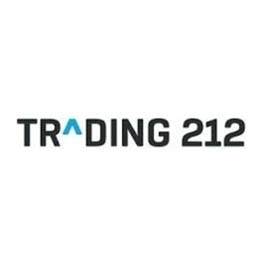
🤴 Trading 212 is Used By: 15,000,000
⚡ Trading 212 is Regulated by: Financial Conduct Authority (FCA), Financial Supervision Commission (FSC)
💵 What You Can Trade with Trading 212: Forex, Minors, Cryptocurrencies, Majors, Exotics, Indices, UK Stocks, US Stocks, Energies, Metals, ETFs, Bonds,
💵 Instruments Available with Trading 212: 10000
📈 Trading 212 Inactivity Fees: No
💰 Trading 212 Withdrawal Fees: No
💰 Trading 212 Payment Methods: Credit cards, MasterCard, VISA, Debit cards, Bank Transfer, Electronic wallets (eWallets), PayPal, Skrill, Dotpay, Carte Bleue, Direct eBanking, Apple Pay, Google Pay, iDeal, Giropay,
Trading 212 Risk warning : CFDs are complex instruments and come with a high risk of losing money rapidly due to leverage. 76% of retail investor accounts lose money when trading CFDs with this provider. You should consider whether you understand how CFDs work and whether you can afford to take the high risk of losing your money.

🤴 SpreadEx is Used By: 10,000
⚡ SpreadEx is Regulated by: Financial Conduct Authority (FCA)
💵 What You Can Trade with SpreadEx: Forex, Minors, Cryptocurrencies, Majors, Exotics, Indices, UK Stocks, US Stocks, Pennystocks, Energies, Metals, Agriculturals, ETFs, IPO, Bonds, Options, Treasuries,
💵 Instruments Available with SpreadEx: 15000
📈 SpreadEx Inactivity Fees: No
💰 SpreadEx Withdrawal Fees: 0, minimum £50
💰 SpreadEx Payment Methods: Credit cards, VISA, Switch, Maestro, Debit cards, Bank Transfer, Payoneer,
SpreadEx Risk warning : Losses can exceed deposits

🤴 HYCM is Used By: 10,000
⚡ HYCM is Regulated by: Financial Conduct Authority (FCA), FCA reference number 186171, Cyprus Securities and Exchange Commission (CySEC), CySEC license number 259/14, Cayman Islands Monetary Authority (CIMA), CIMA reference number 1442313, Dubai financial services authority (DFSA), DFSA license number 000048
💵 What You Can Trade with HYCM: Forex, Minors, Cryptocurrencies, Majors, Exotics, Indices, UK Stocks, Energies, Metals, Agriculturals,
💵 Instruments Available with HYCM: 100
📈 HYCM Inactivity Fees: Yes
💰 HYCM Withdrawal Fees: No
💰 HYCM Payment Methods: Credit cards, Debit cards, Bank Transfer, PayPal, WebMoney, Payoneer,
HYCM Risk warning : Losses can exceed deposits

🤴 Swissquote is Used By: 300,000
⚡ Swissquote is Regulated by: Swiss Financial Market Supervisory Authority (FINMA), Commission de Surveillance du Secteur Financier (CSSF), Financial Conduct Authority, Dubai Financial Services Authority (DFSA), Hong Kong Securities and Futures Commission (SFC), Monetary Authority of Singapore (MAS)
💵 What You Can Trade with Swissquote: Forex, Minors, Majors, Exotics, Indices, UK Stocks, US Stocks, Pennystocks, Energies, Metals, Bonds,
💵 Instruments Available with Swissquote: 100
📈 Swissquote Inactivity Fees: No
💰 Swissquote Withdrawal Fees: $10
💰 Swissquote Payment Methods: Credit cards, Debit cards, Bank Transfer, Payoneer,
Swissquote Risk warning : Losses can exceed deposits

🤴 ForexMart is Used By: 10,000
⚡ ForexMart is Regulated by: Cyprus Securities and Exchange Commission (CySEC)
💵 What You Can Trade with ForexMart: Forex, Minors, Cryptocurrencies, Majors, Exotics, Indices, UK Stocks, US Stocks, Energies, Metals, ETFs, Bonds,
💵 Instruments Available with ForexMart: 111
📈 ForexMart Inactivity Fees: No
💰 ForexMart Withdrawal Fees: 5
💰 ForexMart Payment Methods: Bank Transfer, Visa, MasterCard, Skrill, Neteller, PayCo, fasaPay, Qiwi, Union Pay, AliPay,
ForexMart Risk warning : Your capital is at risk
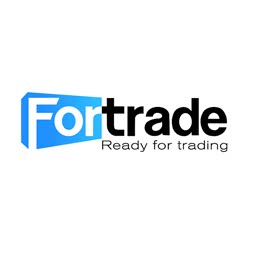
🤴 ForTrade is Used By: 1,000,000
⚡ ForTrade is Regulated by: Financial Conduct Authority (FCA), Cyprus Securities and Exchange Commission (CySEC), Investment Industry Regulatory Organization of Canada (IIROC), National Bank of the Republic of Belarus (NBRB)
💵 What You Can Trade with ForTrade: Forex, Minors, Cryptocurrencies, Majors, Exotics, Bonds,
💵 Instruments Available with ForTrade: 100
📈 ForTrade Inactivity Fees:
💰 ForTrade Withdrawal Fees: No
💰 ForTrade Payment Methods: Credit cards, Debit cards, Bank Transfer, PayPal, Neteller, Payoneer,
ForTrade Risk warning : Your capital is at risk

🤴 FxPro is Used By: 1,866,000
⚡ FxPro is Regulated by: Financial Conduct Authority (FCA), Cyprus Securities and Exchange Commission (CySEC), Financial Sector Conduct Authority (FSCA), Securities Commission of the Bahamas (SCB)
💵 What You Can Trade with FxPro: Forex, Minors, Cryptocurrencies, Majors, Exotics, Indices, UK Stocks, US Stocks, Energies, Metals, Agriculturals,
💵 Instruments Available with FxPro: 430
📈 FxPro Inactivity Fees: Yes
💰 FxPro Withdrawal Fees: No
💰 FxPro Payment Methods: Bank, Wire Transfers, Credit cards, Debit Cards, Visa, Maestro, MasterCard, American Express, eWallets, PayPal, Skrill, Neteller, UnionPay
FxPro Risk warning : 75.78% of retail investor accounts lose money when trading CFDs and Spread Betting with this provider

🤴 Eightcap is Used By: 10,000
⚡ Eightcap is Regulated by: Australian Securities and Investments Commission (ASIC), Vanuatu Financial Services Commission (VFSC)
💵 What You Can Trade with Eightcap: Forex, Minors, Majors, Exotics, Indices, Energies, Metals,
💵 Instruments Available with Eightcap: 100
📈 Eightcap Inactivity Fees: No
💰 Eightcap Withdrawal Fees: Yes
💰 Eightcap Payment Methods: Credit cards, Debit cards, Bank Transfer, POLi, UnionPay, Payoneer,
Eightcap Risk warning : Losses can exceed deposits
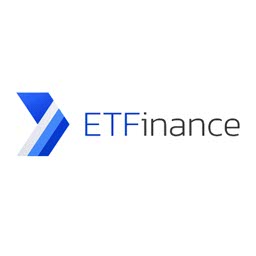
🤴 ETFinance is Used By: 10,000
⚡ ETFinance is Regulated by: Cyprus Securities and Exchange Commission (CySEC)
💵 What You Can Trade with ETFinance: Forex, Minors, Cryptocurrencies, Majors, Exotics, Indices, UK Stocks, US Stocks, Energies, Metals, ETFs, Bonds,
💵 Instruments Available with ETFinance: 150
📈 ETFinance Inactivity Fees:
💰 ETFinance Withdrawal Fees: $100/10000JPY
💰 ETFinance Payment Methods: Bank Bank Wire transfer, Electronic wallets (eWallets), Skrill account, Neteller,
ETFinance Risk warning : Trading leverage products may not be suitable for all traders. 71% of retail CFD accounts lose money.
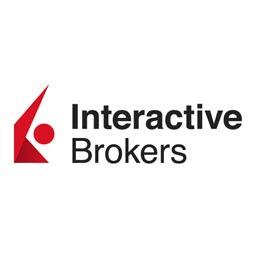
🤴 Interactive Brokers is Used By: 10,000
⚡ Interactive Brokers is Regulated by: Financial Conduct Authority (FCA)
💵 What You Can Trade with Interactive Brokers: Forex, Majors, Indices, UK Stocks, UK Stocks, Energies, Metals, Agriculturals, ETFs,
💵 Instruments Available with Interactive Brokers: 100
📈 Interactive Brokers Inactivity Fees: Yes
💰 Interactive Brokers Withdrawal Fees: 10 USD
💰 Interactive Brokers Payment Methods: Bank Transfer, American Express, Cheque or Check,
Interactive Brokers Risk warning : Losses can exceed deposits

🤴 IG is Used By: 239,000
⚡ IG is Regulated by: Financial Conduct Authority (FCA), Federal Financial Supervisory Authority (BaFin), Swiss Financial Markets Supervisory Authority (FINMA), Commodity Futures Trading Commission (CFTC), National Futures Association (NFA), Australian Securities and Investment Commission (ASIC), Financial Markets Authority (FMA), Monetary Authority of Singapore (MAS), Japanese Financial Services Authority (FSA), Financial Sector Conduct Authority (FSCA), Dubai Financial Services Authority (DFSA), Bermuda Monetary Authority (BMA)
💵 What You Can Trade with IG: Forex, Minors, Cryptocurrencies, Majors, Exotics, Indices, UK Stocks, US Stocks, Energies, Metals, Agriculturals, ETFs, IPO, Bonds, Options,
💵 Instruments Available with IG: 17000
📈 IG Inactivity Fees: Yes
💰 IG Withdrawal Fees: No
💰 IG Payment Methods: Credit cards, VISA, MasterCard, Debit cards, Bank Transfer, Electronic wallets (eWallets), PayPal, BPAY, Payoneer,
IG Risk warning : 70% of retail CFD accounts lose money
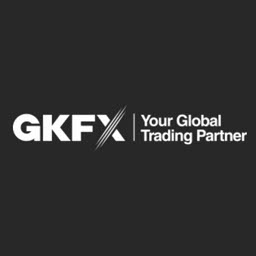
🤴 GKFX is Used By: 10,000
⚡ GKFX is Regulated by: Malta Financial Services Authority (MFSA)
💵 What You Can Trade with GKFX: Forex, Minors, Cryptocurrencies, Majors, Exotics, Indices, US Stocks, UK Stocks, Energies, Metals, Agriculturals,
💵 Instruments Available with GKFX: 100
📈 GKFX Inactivity Fees: No
💰 GKFX Withdrawal Fees: No
💰 GKFX Payment Methods: Credit cards, Debit cards, Bank Transfer, SOFORT, Payoneer,
GKFX Risk warning : Losses can exceed deposits
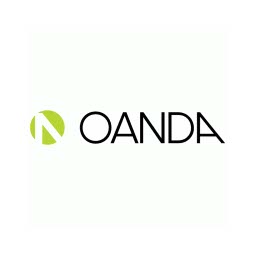
🤴 Oanda is Used By: 10,000
⚡ Oanda is Regulated by: Financial Conduct Authority (FCA), Australian Securities and Investments Commission (ASIC)
💵 What You Can Trade with Oanda: Forex, Minors, Majors, Exotics, Indices, Energies, Metals, Agriculturals, Bonds,
💵 Instruments Available with Oanda: 100
📈 Oanda Inactivity Fees: No
💰 Oanda Withdrawal Fees: No
💰 Oanda Payment Methods: Bank Transfer, Cheque or Check, Debit cards, Payoneer,
Oanda Risk warning : 74-89% of retail CFD accounts lose money

🤴 Core Spreads is Used By: 10,000
⚡ Core Spreads is Regulated by: Financial Conduct Authority (FCA)
💵 What You Can Trade with Core Spreads: Forex, Minors, Majors, Exotics, Indices, UK Stocks, UK Stocks, Energies, Metals,
💵 Instruments Available with Core Spreads: 1605
📈 Core Spreads Inactivity Fees: No
💰 Core Spreads Withdrawal Fees: No
💰 Core Spreads Payment Methods: Credit cards, Bank Transfer, Skrill, Payoneer,
Core Spreads Risk warning : Losses can exceed deposits
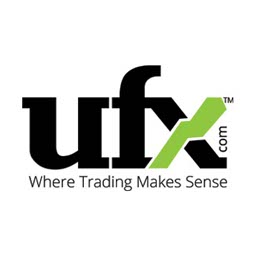
🤴 UFX is Used By: 10,000
⚡ UFX is Regulated by: Cyprus Securities and Exchange Commission (CySEC)
💵 What You Can Trade with UFX: Forex, Minors, Cryptocurrencies, Majors, Exotics, Indices, UK Stocks, US Stocks, Energies, Metals, Agriculturals, ETFs,
💵 Instruments Available with UFX: 100
📈 UFX Inactivity Fees: Yes
💰 UFX Withdrawal Fees: No
💰 UFX Payment Methods: Credit cards, Bank Transfer, American Express, Neteller, Bitcoin, WebMoney, POLi, UnionPay, CashU, QIWI, SOFORT, Giropay, Payoneer,
UFX Risk warning : Your capital is at risk
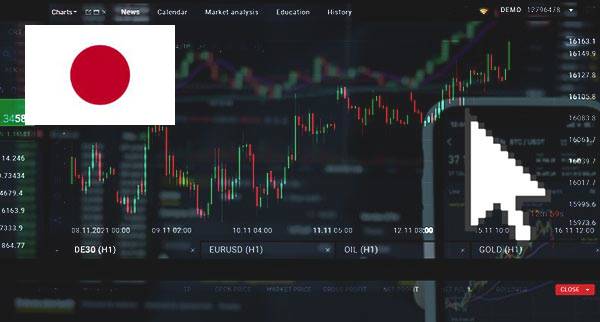
Trading platforms in Japan typically contain a list of open trading positions and your Japanese trading account information. These are referred to as P&L by Japan traders. Once logged in, trading dashboards give Japanese traders an idea of Their overall profit or loss. Most trading platforms in Japan also include an additional list of technical indicators, tools and instruments that Japanese traders can use for trend analysis and risk assesment when researching a stock or other financial instrument. All of these functions can be accessed through the top menu on your Japanese trading platform online, which typically includes shortcuts for common tasks. Then you can use the tools and features of your platform in Japan to Japan trade effectively.
One of the first things that Japanese traders should know when looking for a trading platform in Japan is how it works. There are several different features and functions that you can use to get the most out of your account in Japan. You should be able to plot basic indicators, such as the price action and trend and draw other markups. More advanced online trading platforms in Japan will allow you to do much more than this. Japanese traders should be able to plot market, limit, and stop orders with their online broker in Japan.
Another important feature to look for is the type of trading interface. While the commercial platforms in Japan are designed to be easy to use and have many features, they are still tailored to individual Japanese traders and their needs. If you are an active Japan trader, you may want to customize screeners that allow you to find stocks, ETF's, mutual funds, and more. It should also be easy to navigate and operate, so you can spend a lot of time executing Japan trades.
There are several types of trading platforms in Japan. Some are commercial 3rd party trading platforms offered to Japanese traders by the broker and proprietary platforms designed by the broker and offered to traders in Japan. The most popular 3rd party trading platforms are MetaTrader 4, MetaTrader 5, and cTrader. The most popular propriety trading platform is the eToro trading platform that has been built from the ground up. All trading platforms offer Japanese traders a range of trading tools andfunctionalities such as the ability to place Japan trades, browse a catalog of financial instruments and monitor their Japanese trading accounts. All modern online trading platforms in Japan have additional features that allow for real-time availability of trading information and seamless placing of buy and sell orders for Japan traders. If you are interested in trading stocks, crypto, commodities, futures, or options, you can begin by looking for a online trading platform in Japan that has these features.
Some online trading platforms in Japan offer special trading accounts like CFD trading accounts or islamic trading accounts to their Japanese traders.
There are many types of online trading platforms in Japan available today. Downloadable desktop computer trading platforms, and cloud-based online mobile trading apps are popular amongst Japanese traders. The most popular trading platforms in Japan include MT4 Metatrader and MT5 Metatrader.
When choosing a trading platform in Japan, you have a few options. First, consider the trading fee structure. While some online trading platforms in Japan offer simple and transparent fee structures, others present a complicated fee structure that makes it difficult to determine whether Japanese traders will be paying too much or too little. Moreover, trading commissions usually come in two forms: one is a flat rate and the other is a percentage based on the amount Japanese traders deposit. The fees Japanese traders incur are known as commissions or spreads.
A reputable trading platform in Japan will use data encryption to protect your data as it transfers over the internet. The online trading platform in Japan should also have security both on the server and application level, and use two different servers to sync with your Japanese trading account. A trading platform in Japan that does not use data encryption will be easier for hackers to attack. So be sure to research each platform in Japan carefully.
Before opening a Japan account with a online brokerage firm, it is important to understand what this type of trading account entails. The Japan brokerage firm needs your personal information to open your Japanese trading account, conduct tax tracking and communicate with you. This process is known as KYC or know your customer, and is a reguirement of your online trading platforms financial regulation. Your online trading platforms in Japan will use this information to contact you when you make changes to your account, such as margin calls. It is vital that Japanese traders provide accurate information in order to protect yourself against fraud and identity theft.
Japanese traders first, need to determine how much cash you have available to trade. While some Japan brokers require you to deposit cash into a Japan account with a accepted funding method like a bank transfer or debit card, it is far easier to link a bank account with an online brokerage in Japan. To do this, you will need to find a Japan bank that offers online banking and obtain the bank's routing number, which is nine digits long. To find the routing number of your Japanese bank, look it up on your bank statements, or visit the bank's website.
Trading platforms in Japan should support market, limit, and stop orders. Better online trading platforms in Japan will also allow for trailing stop orders, market-on-close orders and more. Basic features should be easy to use and intuitive, and Japanese traders will want to try out as many as you can to find the perfect fit. If you are and active Japanese trader, make sure that your online trading platform in Japan is easy to customize, too. If you are looking for a trading platform in Japan with the best features, you should also be able to set up multiple watchlists and customize screeners. For more advanced Japanese traders, some online trading platforms in Japan also support automation through custom scripts.
To use a trading platform in Japan, you need to determine the market that you wish to Japan trade in. A trading platform in Japan that caters to one market will have more features than another, allowing Japanese traders to make smarter decisions. It should be easy to use, provide you with high-quality information, and be easy to navigate. You should also be able to access your Japanese online trading account from any location. And remember to consider the security of your Japanese persoanl information.
Japan traders should consider the trading functions they need, as well as the costs associated with using the platform in Japan. Different types of Japan traders need different trading functions. Day traders in Japan need tools to view market depth charts, while short-term Japan traders may need secondary quotation. Option Japan traders will benefit from tools dedicated to visualizing option strategies. A user-friendly trading platform in Japan should be easy to use for any Japan trader, no matter what their level of experience is.
Japan traders should consider their account fees before choosing a trading platform in Japan. Most Platforms in Japan charge for account maintenance, so make sure you know what you will be paying each month. In addition to account fees, you will need to understand how much you will have to deposit in order to access the platform in Japan. Some brokers have different deposit and withdrawal policies, so you may want to research these as well.
Financial regulation is essential for Japanese traders when using any online trading platforms in Japan. Your online trading platform must be regulated and safe for you to fund and withdraw money from when actively trading financial assets online. Check your online trading platform is regulated by Financial Services Agency of Japan (FSA Japan), Japan Securities Dealers Association (JSDA), Japan Investor Protection Fund (JIPF), Tokyo Commodity Exchange (TOCOM) before placing live buy or sell orders in Japan.
Japanese users funding and withdrawing from online trading platforms in Japan, will be able to fund and withdraw to and from their online trading accounts in Japan using a varienty of payment providers. Available funding and withdrawal methods differ for each online trading platform in Japan. Available funding and withdrawal methods available to Japanese traders using online trading platforms include : Bank Transfer, Credit Cards, Discover, JCB Card, Visa Card, Mastercard, American Express Card, Debit Cards, Wire Transfer, PayPal, Skrill, Neteller, MPesa, Bitcoin, Ethereum, XRP, SOFORT, Klarna, Giropay, Payoneer, Paysafe, Qiwi, SafeCharge, Ayden Google Pay, AndroidPay, AlliedWallet, Barclaycard, BiuoWallet, Brinks, Papaya, PayTM, PayToo, Puut Wallet, Ecopayz, Leopay, epayments, WalletOne, Boku, Kuapay, Microsoft Pay, BigPay, SamsungPay, Alipay, Amazon Pay, Apple Pay, BitPay, BPAY, Easypaisa, Trustly, WebMoney, WeChat Pay, Yandex.Money, Venmo, Western Union, MoneyGram, Rapid Transfer, iDeal, POLi, Maestro, China UnionPay, WebPay, Spei, ThunderX, Perfect Money, AdvCash, NganLuong Wallet, AstroPay, efecty, Davivienda, Almancense Exito, Carulla, Edeq, Pago Facil, Rapi Pago, SeriPag, Red Pagos, Banorte, Bancomer, Pago Efectivo, Boleto, PayTrust, STICPAY, fasapay, Volt, dragonpay, Paylivre, FairPay, Ruppe Payments, Finrax, bitwallet, DotPay, SafetyPay, and Przelewy
The best online brokerage accounts are designed to make investing easy and convenient, while offering Japanese traders a range of financial instruments to trade with live upto date data and indepth trading tools. The best online brokerage accounts in Japan will support a range on funding and withdrawal methods. Withdrawals from your online broker account should be processed in 1-3 days. Whether you are a Japanese investor looking to diversify your investments, a Japan brokerage account allows you to purchase stocks, commodities, cryto assetsm mutual funds, ETFs, bonds and CFDs. The best online brokerage accounts will offer Japanese traders with livechat, phone and email support.
Setting up an online Japan brokerage account requires a few minutes. You will need to provide your personal information (date of birth, Social Security number, driver's license, or Japanese photo ID card) as proof of identity, as well as other basic information. Once you are done, they will verify your identity. If you are looking for an easy-to-use platform in Japan, go with an online firm that offers instant access and a free demo account to Japanese traders.
The best online trading app in Japan for you depends on your investment goals and trading experience. There are a wide range of trading apps available in Japan. To narrow down your search, we evaluated each one based on its commission fees, tradable assets, speed, educational resources, customer support and other factors. If you are a Japanese trading beginner, it is recommended to start with a platform in Japan with a commission-free trading feature. Then, look for a online trading app in Japan with the most affordable fee structure and funding and withdrawal methods convieniant to you in Japan.
Your Japanese online trading app should be designed to be easy to use, yet powerful. the best online trading apps in Japan feature a powerful charting engine with sleek graphs, fundamental and technical analysis tools, and a variety of order types. The latest online trading apps also provides social newsfeeds and copy trading features to Japanese traders. Japan trading beginners will enjoy its simplicity and easy-to-understand interface.
Which type of online Japan trading is best for beginners depends on your level of experience. If you are a complete beginner, you can opt for a free demo account which should be easily available on your Japanese online trading platform. If you have an experience in the Japan stock market, you can use the stock screener tools and other technical analysis tools. Alternatively, you can opt for the most affordable online brokerage service with fewer features but lower trading fees in Japan. The best thing about online brokerage services in Japan is that they are usually free of commission on certain financial instruments like stocks and shares.
Online discount brokers allow Japanese traders to purchase securities through their online platforms in Japan. Online trading platforms offer fast buy and sell order transaction speeds. Discount brokers in Japan tend to be cheaper than full-service brokerages and offer zero-commission stock trading. For more advanced Japanese traders, they should look at full-service brokers in Japan. If you have any doubts about an online trading platform Japanese traders can try a free demo account before you decide to invest real money.
You may be wondering what documents are required to open an online Japan trading account. To start with, you must have basic personal information like your date of birth and Japanese address. You must also have proof of your Japanese citizenship, such as a passport or a residency visa. A photo ID may also be requested to setup a Japanese trading account online.
Before you can open a trading account, you need to deposit cash into it. The easiest way to do this is by linking your bank account. You must have your Japan bank's routing number (which is nine digits) and account number (ten digits). You can find your Japan bank's routing number on your checks or on their website.
In order to open a trading account in Japan, you must submit KYC documents. These include a valid passport, ID card, and proof of address. If you do not have these documents, you may need to get a Japan bank account or a Demat account. In either case, you will need to provide proof of your identity and address to the brokerage company.
Some Japan online brokers ask for proof of identity before allowing Japanese traders to open a live trading account, and this includes a bank statement or passport. Sometimes, the Japan online broker will require you to send a copy of these documents to them, which can prolong the process. Once you have your documents, your online broker in Japan will review your information and ask you to sign a virtual contract. This is standard practice and all regulated online trading platforms in Japan should do this.
A number of online trading platforms in Japan exist today. These Platforms in Japan provide investors with an easy-to-use interface and allow you to place Japan trades anytime, from anywhere. They allow Japanese traders to conduct Japan trades from the convenience of your home or office. Japanese traders can even monitor international investment portfolios with the click of a button online in Japan. By utilizing an online trading platform in Japan, you will have access to real-time market information that allows Japanese traders to make informed decisions and take action accordingly.
Choosing the right online trading platform in Japan is critical, as there are hundreds of options. Be sure to check the licensing of the broker in Japan and whether or not they are licensed to offer online trading services to Japanese residents. Choose an online trading platform in Japan with a smooth user experience, excellent customer support, and a fraud-reduction guarantee that should be a requirement of strict financial regulation in Japan. Some online trading platforms in Japan even offer free demo accounts to potential customers, which can be beneficial to both new Japanese traders and very experienced Japanese clients. Make sure to read reviews of different online platforms in Japan and decide which one works best for you.
With the advantages of online trading available in Japan, Japanese investors can maintain a much greater control over their portfolios. With an online trading platform in Japan, investors can review their portfolios at any time and can make decisions at their own convenience. By eliminating the need to physically talk to a broker, online trading platforms in Japan can help you maximise your profits and minimize losses. This is a convenient, profitable, and hassle-free service for Japanese investors. It is also easy to start a new account with an online trading platform in Japan.
Japanese traders should be aware that using online trading platforms should be taken seriously. Real online trading in Japan takes years of experience and time to effectively learn technical analysis and risk manangement when trading online. Buying and selling financial instruments should never feel like gambling. Japanese traders should only invest what they can afford to lose and make very careful educated buying and selling decisions using detail information they find on online trading platforms in Japan and from other sources. Trading has never been more accessible to people in Japan as thresholds for entry are lower. The lower threshold for entry can fuel impulsivity and contribute to the development of mental health disorders for Japanese users. Although regulated by government bodies in Japan, short-term trading is often compared to gambling, but should infact be taken very seriously by Japanese traders.
Besides being financially dangerous, investing in a financial market can also cause serious emotional problems for Japanese traders. Many Japanese investors go into debt to fund their investments. Make sure you understand technical analysis and risk management tools like limit orders and stop loss orders before trading.
Using a trading platform in Japan can come with certain risks. Although the risk of trading with an insecure platform in Japan is low, it is still possible to be a victim of fraud. The most common types of fraud are man-in-the-middle attacks and phishing. While this may not sound serious, it does have serious consequences for Japanese traders.
In addition to security risks, online trading in Japan requires a stable internet connection. Even if a Japanese investors computer does not crash, they can still miss out on making a live trade on their Japanese online trading platform. Moreover, an internet connection issue can delay or cancel an order a Japanese trader actions. This can cause unnecessary delays and unwanted outcomes. Moreover, Japanese traders can experience emotional investment decisions, which can result in making bad choices or even over-investing.
Technical indicators can be classified into two main categories, momentum indicators and price history. With technical analysis, momentum indicators are used by Japanese traders to analyze the direction of price movement and provide signals for potential Japan trades. However, no indicator is perfect and will give you 100% accurate signals all the time. This means Japanese traders need to use different tools and combine them. If you want to make better trading decisions, use a combination of indicators available on your online trading platform in Japan. Japanese traders will definitely improve your trading abilities with knowledge these tools.
Choosing the best trading platforms in Japan offering Technical Analysis tools is important to your success. The features of these trading platforms in Japan may be different, but they all offer tools for technical analysis. If you are new to the stock or currency markets and aren't familiar with technical analysis tools, Japanese trading platforms offer an educational resources that makes learning these tools to trades easier for Japanese traders. In addition to its educational resources, some more popular online trading platforms in Japan offers Japanese traders the ability to copy Japan trades of other more experienced popular investors from all over the world. This is a great way for Japanese traders to follow, learn and potentially profit from the trades of successful Japan and international traders. The copy trading features available to Japanese traders allows the replication of individual trades or entire portfolios, which is ideal for beginners using online trading platforms in Japan.
There are various reasons for opening an online trading account in Japan. The most important reason for Japanese traders is convenience. Japanese traders can monitor their online trading account from anywhere. Online trading platforms in Japan provide customized support and technical support. Live livechat, phone support and email support. Online trading platforms in Japan provide alerts and instant access to all the major exchanges. Japanese online trading platform users must check the service availability of support, as Japanese traders issues will need to be resolved quickly.
Online trading platforms in Japan help you Japan trade stocks, ETF's, and other financial instruments. All these Platforms in Japan can be linked to a bank account, which makes it easy to transfer money. You can even make Japan trades through a online mobile trading app in Japanese. Whether you want to invest for your retirement or for the short term, an online trading platform in Japan should be able to accommodate your needs.
A Japan trader is someone who speculates on an asset's price by buying and selling it. He uses both technical and fundamental methods to make money. He can Japan trade any asset as long as he has enough funds to cover all of his positions. Japan traders can either operate on behalf of another party or for personal gain. Some professional Japanese traders use other people's funds while others take a commission for their services. Some financial instruments like CFDs use high risk leveragge and allow Japanese traders to speculate on both up and down price movements.
A Japan trader's strategy is the set of conditions he uses to enter and exit positions. Japan traders can make their decisions based on several criteria such as the actions and movements of trading indicators, the breakouts of distinct levels, or chart/candle patterns. Japanese beginners may try their strategies by trading in a demo environment on their Japanese online trading platform first, until they are comfortable with it. While trading in the demo environment, it is wise to start small and gradually move up to live trading online in Japan.
Japan traders and investors play different roles in the stock and other financial markets. The former invests in stocks to build their wealth over time. Japanese investors use fundamental indicators to find undervalued stocks that have potential for capital appreciation. Japan traders, on the other hand, buy and sell securities in a short period of time to make quick profits. While Japanese investors generally measure time horizons in years, Japan traders tend to think in terms of days, weeks, or even minutes.
Japanese investors may invest in stocks or bonds, but Japan traders play an even greater role in the market. Without the Japan traders, markets would be less robust. They provide liquidity and make sure short-term cues are factored into prices. In a healthy market, this means Japan traders are an essential part of the local Japanese and international financial markets.
Japan traders and investors specialize in a particular instrument or group. For instance, a fixed-income Japan trader specializes in government bonds and corporate bonds. In other words, he Japan trades government bonds and corporate bonds, but only within the range of bonds with 10 years or less. Retail investors in Japan often focus on the short term or long-term. As online trading platforms continue to grow the number of Japanese retail traders continues to grow as more Japanese people start to take control of their online trading portfolios.
There are many trading strategies available on online trading platforms in Japan. The most popular trading strategies include News trading, End Of Day trading, Swing trading, Day trading, Trend trading, Scalping, and Position trading.
All trading strategies take time to learn and require Japanese traders to effectively be able to understand and use technical analysis charting and risk management tools available on online trading platforms in Japan. Japanese traders can be highly profitable with day trading, but you can also be extremely unprofitable with position trading. The primary difference between the two types of trading is how long you hold a position. In day trading, Japanese traders invest only when you think the market is about to make a move. With position trading, you hold your positions longer, and you have to have a clear understanding of the market.
In technical analysis, a Japan trader uses technical indicators (like moving averages, momentum, trendlines) to guide their decisions. Japan traders can also set profit and loss limits based on their trading strategy. It is also a good idea to write down any conditions that could lead you to make a Japan trade, such as when to enter or exit. It can be useful for Japanese trades to use a technical indicator to trigger your Japan trades, such as MACD (the moving average crossover device).
When choosing a trading strategy, it is important for Japanese traders to keep in mind that different financial markets have different characteristics and time frames. Japanese Day traders, for instance, should use the daily time frame, while weekday Japan traders should use the intraday time frame. However, you should be aware that day trading is a highly dynamic and volatile trading strategy for Japanese traders. If Japanese traders wish to survive for a long time, the longer they practice a trading strategy and risk management, the better the chances of investment portfoliosuccess will be, when using online trading platforms in Japan.
Trading involves emotions, and these can influence Japanese traders decisions. A trading strategy removes these emotions from the equation and allows Japanese traders to make rational decisions. It also gives Japanese traders a framework to keep your winning and losing trades separate and in order in your online trading account, without the emotional reactions that can be destructive to Japanese traders. When choosing a trading strategy, Japanese traders need to consider personal risk tolerance and how much risk you can afford to lose.
If Japan isn’t quite what you are looking for you can check out some of the best Japan alternatives below.
If you would like to see Japan compared against some of the best Japan online trading platforms alternatives available right now you can do so by clicking on the links below.